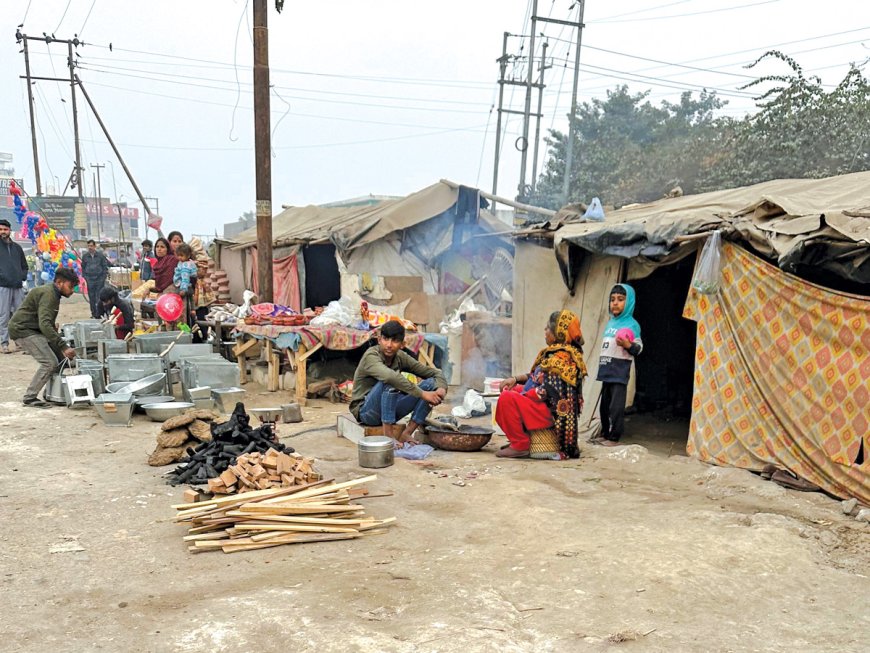Raising the ROOF on sustainable housing for construction workers

Climate change is a crisis requiring immediate action. With almost every region in the world experiencing extreme weather events, 2024 has already been a catastrophic year with extreme weather. India stands at a critical juncture as one of the world's most vulnerable countries to climate change, compounded by rapid urbanisation and infrastructure growth. The construction and real estate sector, a cornerstone of economic growth, contributes about 21% to the country’s carbon emissions and exacerbates heat-related challenges. With global temperature projected to rise above 1.5 degrees Celsius within the decade, densely populated cities face escalating heat stress. This heat stress and its related risks are larger for vulnerable populations such as construction workers who endure harsh working conditions and inadequate housing.
Centring the most-vulnerable: building better for those who build
While extreme heat is becoming a problem for all of us, those who work outdoors and live in poor-quality housing are at a much greater risk. India has regulations that address the housing and welfare of construction workers. However, despite efforts like the Building and Other Construction Workers Act and the Inter-State Migrant Workmen Act, millions of construction workers continue to grapple with dismal living conditions—a lack of proper shelter, sanitation, and access to basic amenities. The need for sustainable and climate-resilient housing solutions is urgent, not only to mitigate environmental impact but also to safeguard the health and productivity of workers integral to the country's development.
In response to urban challenges, innovative housing projects like Urban Nomads by architect Aniket Risbud featuring rainproof Tetrapack walls, and Tata Steel's NEST-IN with modular steel solutions for various needs from housing to quarantine wards, offer customisable designs for migrant and construction workers.
These initiatives show the potential for change but remain isolated without systemic solutions.
The need for fair and sustainable construction industry practices, particularly concerning the living conditions of construction workers amid increasing temperatures, is a pressing concern. Many view the lack of access to cooling as a social inequity issue. This connection between health and investments in climate adaptation was discussed at length at the COP28 summit in Dubai. There is a growing emphasis on providing climate-resilient housing solutions for vulnerable populations, including construction workers.
The need for investing in climate-resilient solutions
A group of students from the Bhanuben Nanavati College of Architecture (BNCA) have developed an innovative prototype specifically designed for construction worker housing. Developed as a part of Solar Decathlon India (SDI), the world’s largest Net-Zero Building Challenge, the prototype promises a 12-fold improvement in thermal efficiency compared to traditional tin-shed units. It features a modular design that facilitates rapid assembly and disassembly, adaptable to various site conditions without requiring specialised skills.
Initially costing Rs 1,400 per square foot, the BNCA prototype has substantial cost-saving potential through industrial production, projecting a reduced cost of Rs 50 per square foot over its 12-15-year lifecycle. Designed as a DIY kit, its modular nature also allows for the integration of renewable energy technologies, such as photovoltaic panels, further enhancing sustainability and resilience.
Such innovative solutions and prototypes exemplify a transformative approach towards addressing the housing needs of construction workers while advancing climate resilience in the building sector. By investing in innovative solutions like this, India can foster a more equitable and sustainable future where urban development aligns with environmental stewardship and social responsibility. Government initiatives that incentivise the adoption of such solutions and collaborations between industry, academia, and the government can result in practical, scalable solutions that combine human welfare with smart business to drive systemic change in
the construction industry. Solutions and initiatives like these are demonstrative of the potential to create a more sustainable and equitable future.

Pooja Suresh Hollannavar
Communications Manager, Solar Decathlon India

Prasad Vaidya
Director, Solar Decathlon India, and Senior Fellow, AEEE







